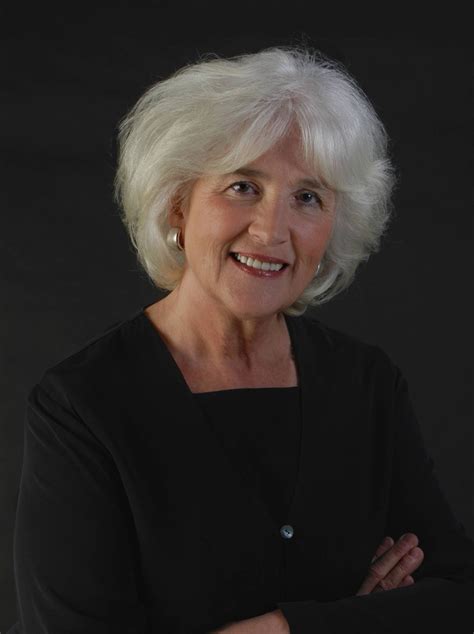A Quote by Barbara Coloroso
If we parents accept that problems are an essential part of life's challenges, rather than reacting to every problem as if something has gone wrong with the universe that's supposed to be perfect, we can demonstrate serenity and confidence in problem solving for our kids.By telling them that we know they have a problem and we know they can solve it, we can pass on a realistic attitude as well as empower our children with self-confidence and a sense of their own worth.
Quote Topics
Accept
Attitude
Challenges
Children
Confidence
Demonstrate
Empower
Essential
Every
Gone
Kids
Know
Life
Our
Our Children
Own
Parents
Part
Pass
Perfect
Problem
Problem Solving
Problems
Rather
Reacting
Realistic
Self
Self-Confidence
Sense
Serenity
Solve
Solving
Something
Supposed
Supposed To Be
Telling
Than
Them
Universe
Well
Worth
Wrong
Related Quotes
We are more than our problems. Even if our problem is our own behavior, the problem is not who we are-it's what we did. It's okay to have problems. It's okay to talk about problems-at appropriate times, and with safe people. It's okay to solve problems. And we're okay, even when we have, or someone we love has a problem. We don't have to forfeit our personal power or our self-esteem. We have solved exactly the problems we've needed to solve to become who we are.
Solving the population problem is not going to solve the problems of racism, of sexism, of religious intolerance, of war, of gross economic inequality. But if you don't solve the population problem, you're not going to solve any of those problems. Whatever problem you're interested in, you're not going to solve it unless you also solve the population problem. Whatever your cause, it's a lost cause without population control.
There’s a belief now that the problem with our schools is parents, that if we just had better parents we would have better performing kids and, therefore, we wouldn’t have a problem at all. But what’s missing in that equation is that you do have a lot of parents in this country who are very involved in their children’s education and who do want something better. They want to see better for their kids. They know that they’re in schools that aren’t performing particularly well and if you look at how we treat those parents, it is quite poorly.
I am at my happiest when I'm problem solving and a large part of writing is for me a lovely labor in problem solving. Every act of discovery in writing involves a process of figuring out why I'm not seeing what I need to see. Niggling feelings, discomforts, a sense that you've forgotten or overlooked something, a sudden curiosity about what if here? - these are priceless. They are the bases of problems and lead the way.
The most dangerous thing that can happen to us, I think, is to permit a feeling to develop that any client is a problem. I have always taken the attitude that no account is a 'problem account' but that all accounts have important problems attached to them - that you can waste more time and burn up more nervous energy by fighting a problem than by taking a positive attitude and solving it. It sure gives you a nice, warm glow when you do.
International adoption does not begin to solve the problems of the world's orphaned children. It's truly not the answer. At the same time, it solves a problem for a few. I think it can be a brilliant solution to the problem of adults wanting a child in their lives or wanting more children in their lives and the problem of children who want parents in their lives.
Something is amiss, deeply wrong, something is deeply wrong with the way we're living our lives collectively, with the way we are creating our collective experience on earth. And we are coming to the conclusion that the problem after all is not political, that the problem after all is not economic, that the problem after all cannot be solved with bombs or missiles or bullets, but that the problem in fact is spiritual, that the problem with the world today is as it has always been, a problem of our most basic beliefs. Without a doubt it`s a spiritual awakening and a spiritual revolution.
Cities are never random. No matter how chaotic they might seem, everything about them grows out of a need to solve a problem. In fact, a city is nothing more than a solution to a problem, that in turn creates more problems that need more solutions, until towers rise, roads widen, bridges are built, and millions of people are caught up in a mad race to feed the problem-solving, problem-creating frenzy.



































